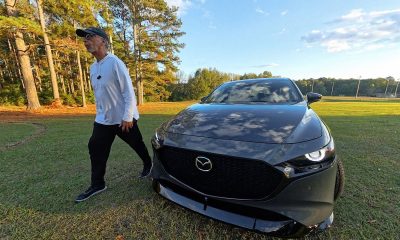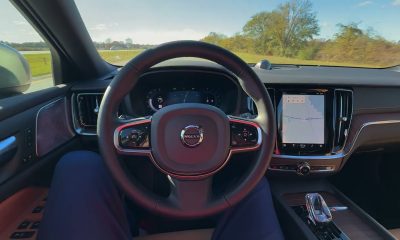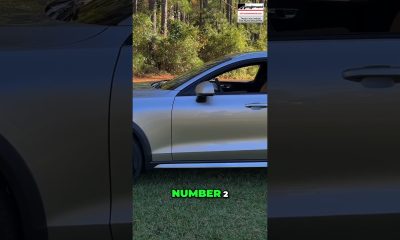Transportation
Car Review: 2016 Kia Sorento
By Frank S. Washington
NNPA Columnist
LAKE TAHOE, Calif. (NNPA)–Although it should be sunny by the time you read this, we ran into real world conditions while here to test drive the new 2016 Kia Sorento. Wind gusts were up to 50 mph and sometimes more; precipitation varied between rain and sleet and a bunch of snow was expected that night.
We felt some relief when we were told that Kia had brought all-wheel-drive versions of the 2016 Sorento utility vehicle, front-wheel-drive versions are available. Although we were at altitudes that ranged from 5,000 to 7,000 feet, the roads were not narrow two-lane affairs. Still, driving at those altitudes with not much room for error kept us more alert than usual.
Kia has completely revamped the Sorento. The utility had a longer wheelbase by three-inches; it was slightly wider and a bit lower. Overall, it looked sleeker, the hood looked longer and it looked a lot lower than the one half-inch that Kia said it was.
The front end was more aggressive and narrower, while the tiger grille seemed taller. Its quad diode fog lamps were very distinctive and they are becoming the face of the brand, never mind the grille.
New for the third generation of the Sorento was a turbocharged four-cylinder engine that made 240 horsepower. Thus, there are now three engine choices: a 2.0-liter turbocharged four cylinder engine that made 240 horsepower, a 2.4 liter normally aspirated four-cylinder that made 185 horsepower and the 3.3-liter V6 that made 290 horsepower.
Kia brought the V6 and the four-cylinder turbo. We sampled the turbo first. It ran smoothly, the engine was quiet and the six-speed transmission was sure. The torque was the secret at these altitudes.
The turbo made 260 pound-feet of torque at 1,450 rpm while the V6 that we sampled after lunch made 252 pound-feet of torque at 5,300 rpm. It made a difference. The Sorento’s six cylinder engine, though it made 30 horsepower more than the four-cylinder turbo, worked harder to get up and over the mountains here and the transmission downshifted often searching for gear induced torque.
The turbo on the other hand was a more effortless drive. By adding the four-cylinder equipped with a blower to the lineup, Kia has given the Sorento a model choice for just about any terrain in the U.S.
With the base four-cylinder engine, the Sorento can tow 2,000 pounds, the turbo can pull 3,500 pounds and the V6 can pull 5,000 pounds. The towing figures are for all-wheel-drive version of the utility vehicle.
The ride attributes of both Sorentos here were identical as well they should have been. The suspension had been revised, steering was relatively quick, for a utility vehicle the Sorento was fairly nimble, and a new “H” shaped subframe gave it a solid ride.
Overall, the Sorento was quiet, really quiet. That was surprising since the vehicle sat a bit higher than the average car. We felt the wind gusts more than we heard them. The Sorento was so quiet we kept eyes on the tree limbs and branches to gauge how hard the wind was blowing.
Improved too was the interior of the 2016 Sorento as Kia tries to uplift it into the ranks of premium utility vehicles. Occupants could have a tactile experience with the soft touch surfaces, especially the instrument panel, center console and door panels. The door grips were so soft they felt padded.
The Sorento had a 50-50 folding third row seat that was standard on the V6 and optional of the 2.4-liter four-cylinder. It is not available on the turbo. The second row was a 40-20-40 folding seat and the front row seats were heated and cooled, the second row seats were heated and the front row can have a 14-way power driver seat and an eight-way power passenger seat.
There was a stretch of California 70 East that was lined with wood frame houses, each sitting on a half-acre or more of land that looked like they were populated by a no-nonsense crew of people. This is where we got a chance to test the Sorento’s Clari-Fi audio technology.
It rebuilds sounds that are lost as music is compressed for digital storage. In other words, it will read the sound that is there and reconstruct the sound that got lost. The first application in a motor vehicle, Kia said the sound was cleaner, crisper, wider and more dynamic. We found it to be different and to sound better.
The Sorento’s UVO system continues to be improved. Apps can be downloaded from iTunes and Google Play. Content can include Soundhound, Pandora and iHeart radio. For sure, there was satellite radio, voice controls and features such as local weather, fuel prices and sport scores in our test vehicle. The Sorento, like other contemporary vehicles, can operate as a semi lap top computer on four wheels.
Safety features on our turbo four-cylinder as well as the V6 included an electronic parking brake, smart cruise control, surround view monitor, lane departure warning, forward collision warning, a rearview camera, a backup warning system and Bluetooth.
New does not necessarily mean improved. But in the case of the 2016 Kia Sorento both meanings apply. Prices start at $24,900 and range up to $43,100.
Frank S. Washington is editor of AboutThatCar.com.
###
Bay Area
Former Mayor Willie L. Brown Endorses Dana Lang for BART Board District 7
Former San Francisco Mayor Willie L. Brown has announced his endorsement support for Dana Lang for BART Board District 7 Seat, which includes voters from both sides of the Bay, and in San Francisco includes Bay View Hunters Point and Treasure Island. Brown acknowledged that Lang has been a behind-the-scenes force in transportation funding for many years and can help BART manage its financial challenges.
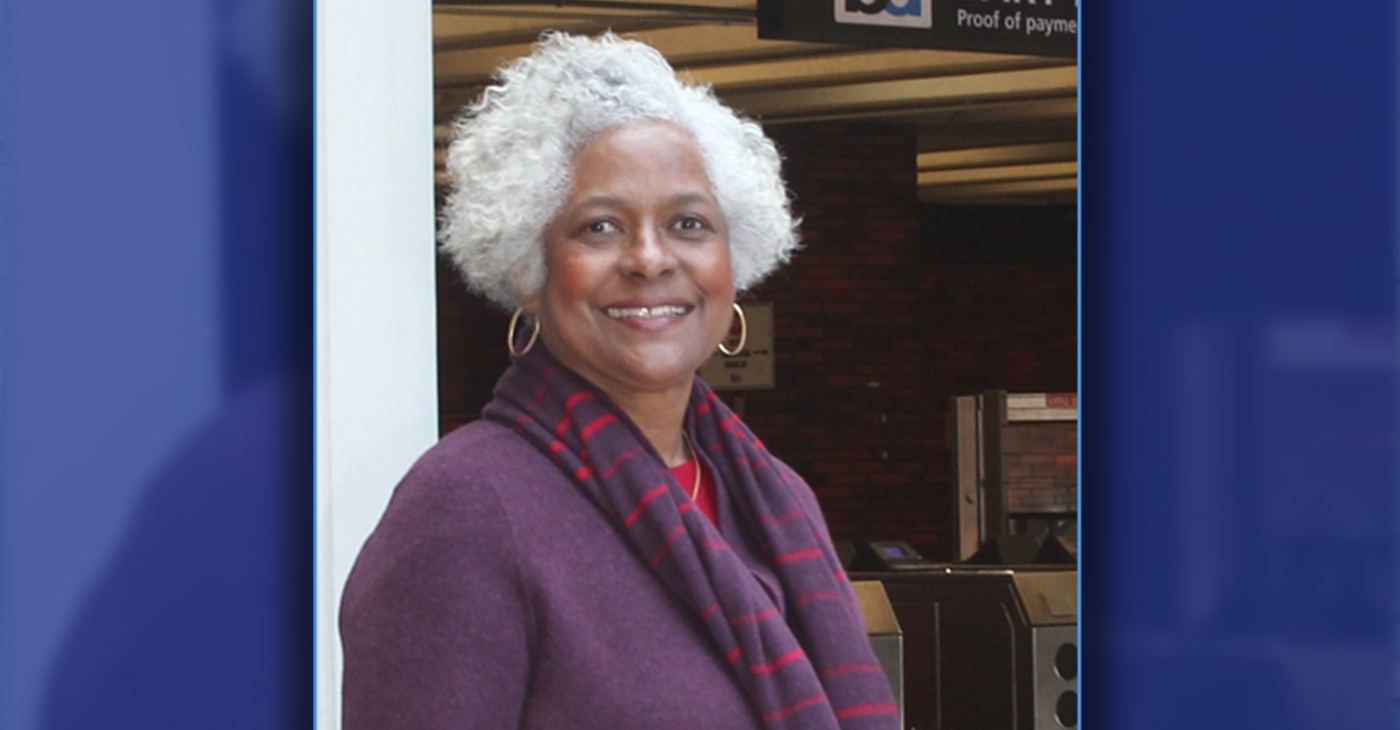
By Oakland Post Staff
Former San Francisco Mayor Willie L. Brown has announced his endorsement support for Dana Lang for BART Board District 7 Seat, which includes voters from both sides of the Bay, and in San Francisco includes Bay View Hunters Point and Treasure Island.
Brown acknowledged that Lang has been a behind-the-scenes force in transportation funding for many years and can help BART manage its financial challenges.
“When I met with Dana Lang I asked many questions, then I asked others about her contributions. Getting to know her I realized that she truly understood transportation. At a time when BART is facing a “fiscal cliff” and an upcoming deficit of nearly $360 million per year, Dana is more than ready for this job, she is ready to meet the moment!”
Over the past 24 years Lang has been a funding and grants specialist with several municipal transportation agencies, including the Metropolitan Transportation Commission, San Francisco Muni, San Francisco Police Department and San Francisco International Airport (SFO).
Lang says, “I’ve faced a number of fiscal crises in my career — such as securing $52 million in new transit security funding for SFMTA (Muni) during the 2008 Great Recession, when others thought it was not possible. I have always managed to identify new funding and ways to make transit more secure. Facing a crisis is the best time to act, through advocacy and policy setting. We’ve got to keep BART running and make it safer and more vibrant in order to meet the needs of our riders, our work force, and our community.”
Lang grew up in the low-income minority community of East Palo Alto, CA, and knew that locating grants and resources could positively impact an entire city and its surrounding region — helping to create and retain agency jobs, getting transit riders to their workplaces, and encouraging small business development near transit hubs.
With that in mind, she pursued a bachelor’s degree in economics from Wellesley College, then an MBA from UC Berkeley’s Haas School of Business. She started her municipal career as a policy advisor to Mayor Elihu Harris and helped secure grants for the City of Oakland before moving to the Metropolitan Transportation Commission to serve as a transportation grants specialist.
During her 24-year career she has helped secure hundreds of millions of dollars for Bay Area transit agencies and municipalities. In addition to BART’s financial health, Lang’s priorities for BART also include safety, cleanliness, station vitality — and bringing riders back to BART. She has served on the BART Police Civilian Review Board since 2022.
Lang is also endorsed by BART Board Director Robert Raburn, former BART Board Director Carole Ward Allen, the Rev. Amos Brown, pastor of San Francisco’s Third Baptist Church, Alameda County supervisors Keith Carson and Nate Miley, former Oakland Mayor Elihu Harris, District 4 Oakland City Councilmember Janani Ramachandran, Oakland Chinatown leader Carl Chan, and many others.
Lang is seeking the BART Board District 7 Seat, which includes San Francisco’s Bay View Hunters Point and Treasure Island, a large portion of Oakland, the cities of Alameda, Emeryville, Piedmont, and a small portion of Berkeley.
Bay Area
Alameda County Supervisors Keith Carson and Nate Miley Endorse Dana Lang for BART Board District 7
Alameda County Supervisors Nate Miley and Keith Carson have announced their support for Dana Lang for the BART Board District 7 Seat. These supervisors say that Lang has been a behind-the-scenes force in transportation funding for many years and can help BART manage its financial challenges.
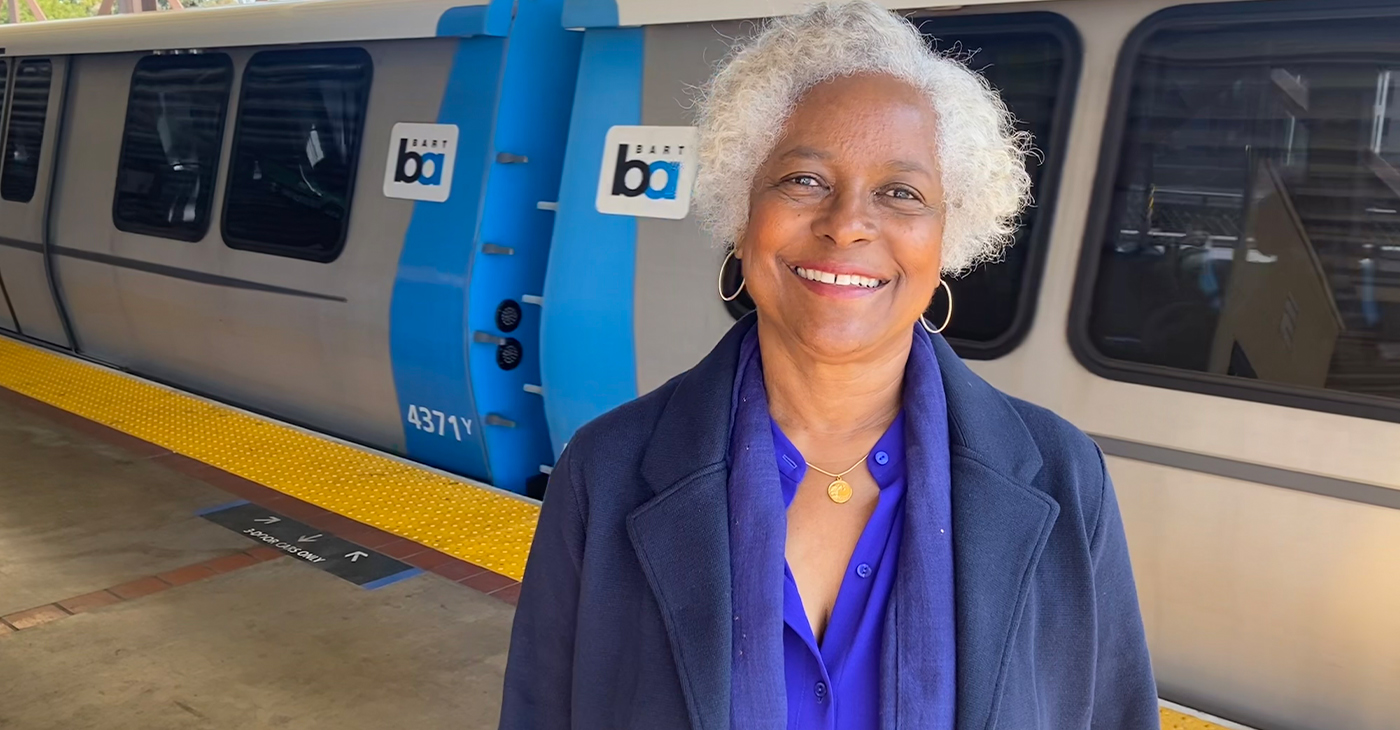
By Oakland Post Staff
Alameda County Supervisors Nate Miley and Keith Carson have announced their support for Dana Lang for the BART Board District 7 Seat.
These supervisors say that Lang has been a behind-the-scenes force in transportation funding for many years and can help BART manage its financial challenges.
Supervisor Nate Miley acknowledges that, “At a time when BART is facing a “fiscal cliff” and an upcoming deficit of nearly $360 million per year, Dana is the person for the job. As a transportation leader, Dana Lang is exactly ready to meet this moment.”
Over the past 24 years, Lang has been a funding and grants specialist with several municipal transportation agencies, including the Metropolitan Transportation Commission, San Francisco Muni, San Francisco Police Department and San Francisco International Airport (SFO).
Dana Lang says, “I’ve faced a number of fiscal crises in my career — such as securing $52 million in new transit security funding for SFMTA (Muni) during the 2008 Great Recession, when others thought it was not possible. I have always managed to identify new funding and ways to make transit more secure. Facing a crisis is the best time to act, through advocacy and policy setting. We’ve got to keep BART running and make it safer and more vibrant in order to meet the needs of our riders, our work force, and our community.”
Lang grew up in the low-income minority community of East Palo Alto and knew that locating grants and resources could positively impact an entire city and its surrounding region — helping to create and retain agency jobs, getting riders to their workplaces, and encouraging small business development near transit hubs. With that in mind, she pursued a bachelor’s degree in economics from Wellesley College, then an MBA from Cal Berkeley Haas School of Business.
She started her municipal career as a policy advisor to Mayor Elihu Harris and helped secure grants for the City of Oakland before moving to the Metropolitan Transportation Commission. During her 24-year career she has helped secure hundreds of millions of dollars for Bay Area transit agencies and municipalities. In addition to BART’s financial health, Lang’s priorities for BART also include safety, cleanliness, station vitality and bringing riders back to BART.
She has served on the BART Police Civilian Review Board since 2022.
Lang is also endorsed by BART Board Director Robert Raburn, former BART Board Director Carole Ward Allen, Oakland City Attorney Barbara Parker, former Oakland Mayor Elihu Harris, former San Francisco Mayor Willie L. Brown, Oakland Councilperson Janani Ramachandran, Alameda Councilperson Tracy Jensen, Oakland Chinatown leader Carl Chan, and many others.
Lang is seeking the BART Board District 7 Seat, which covers most of the East Bay, including Oakland, Alameda, Emeryville, Piedmont, and a small portion of Berkeley. The district also includes Bay View Hunters Point and Treasure Island in San Francisco.
Bay Area
Congresswoman Lee Celebrates Federal Green Transportation Investments for California
OAKLAND, CA — Congresswoman Barbara Lee (CA-12) today celebrated the Department of Transportation’s (DOT) announcement of two grants for California to expand clean transportation infrastructure. The DOT announced that Bay Area Rapid Transit (BART) will receive over $14 million to install Level 2 EV charging ports at all BART-managed parking facilities for use by customers and community members.

OAKLAND, CA — Congresswoman Barbara Lee (CA-12) today celebrated the Department of Transportation’s (DOT) announcement of two grants for California to expand clean transportation infrastructure. The DOT announced that Bay Area Rapid Transit (BART) will receive over $14 million to install Level 2 EV charging ports at all BART-managed parking facilities for use by customers and community members. The DOT also announced that the California Department of Transportation will receive $102 million for the West Coast Truck Charging and Fueling Corridor Project to deploy charging and hydrogen fueling stations for zero-emission medium- and heavy-duty vehicles along 2,500 miles of key freight corridors in California, Oregon, and Washington.
The transportation sector is the largest source of U.S. carbon emissions. According to the United Nations’ Intergovernmental Panel on Climate Change (IPCC), a 50 percent reduction in carbon must be achieved by 2050—and as much as a 91 percent decrease by 2100—to stay within the globally accepted goal of limiting the planet’s warming to 1.5 degrees Celsius.
“Today, I am excited to announce that BART has been selected to receive this critical federal funding to help expand mobility and end fossil fuel dependence,” said Congresswoman Lee. “It is especially important the first phase of the project will prioritize deployment at stations in or near disadvantaged communities. BART is an essential part of our public transit system, and these funds will improve transit for its riders in throughout the Bay Area.”
By installing chargers at BART stations that are close to multifamily housing, workplaces, medical facilities, schools, and retail, the project will support robust EV adoption across a wide range of socioeconomic groups and road users.
Furthermore, because of discriminatory policies, highways were built near and through Black and brown communities, making these communities much more vulnerable to chronic illnesses associated with disproportionate exposure to air pollution. A reduction in gas-powered cars will be especially beneficial to communities of color and low-income communities who have been disproportionately harmed by infrastructural and environmental injustices.
The West Coast Truck Charging and Fueling Corridor Project will enable the emissions-free movement of goods connecting major ports, freight centers, and agricultural regions between the U.S. borders with Mexico and Canada.
On this funding, Congresswoman Lee said: “This funding will go a long way toward not only combatting the climate crisis, but it will create good-paying jobs as well. I thank the Department of Transportation and the Biden-Harris administration for their continued commitment to a cleaner and healthier environment.”
Last year, alongside the California delegation, Congresswoman Lee sent a letter to DOT Secretary Pete Buttigieg urging support for the grant application of the West Coast Truck Charging and Fueling Corridor Project through the Bipartisan Infrastructure Law’s Charging and Fueling Infrastructure program.
-

 Activism2 weeks ago
Activism2 weeks agoAI Is Reshaping Black Healthcare: Promise, Peril, and the Push for Improved Results in California
-

 Activism3 weeks ago
Activism3 weeks agoOakland Post: Week of April 16 – 22, 2025
-

 Activism2 weeks ago
Activism2 weeks agoNewsom Fights Back as AmeriCorps Shutdown Threatens Vital Services in Black Communities
-

 Activism2 weeks ago
Activism2 weeks agoBarbara Lee Accepts Victory With “Responsibility, Humility and Love”
-

 Activism2 weeks ago
Activism2 weeks agoESSAY: Technology and Medicine, a Primary Care Point of View
-

 Activism2 weeks ago
Activism2 weeks agoFaces Around the Bay: Author Karen Lewis Took the ‘Detour to Straight Street’
-

 Activism2 weeks ago
Activism2 weeks agoFour Bills Focus on Financial Compensation for Descendants of Enslaved People
-

 Activism2 weeks ago
Activism2 weeks agoTeachers’ Union Thanks Supt. Johnson-Trammell for Service to Schools and Community



